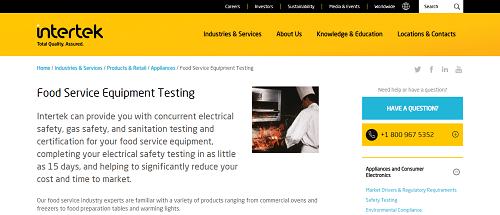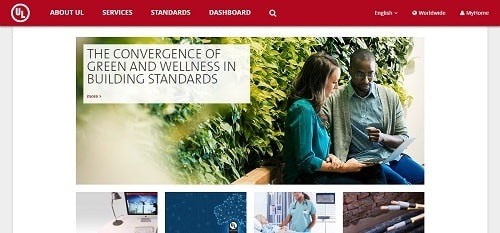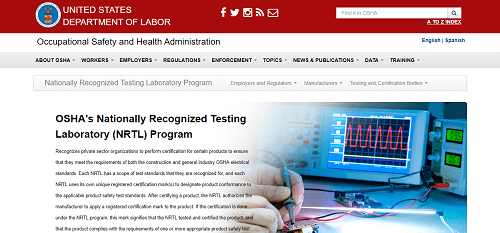Food equipment manufacturers need to continually stay aware of any and all labeling steps and standards as they are introduced or altered. Because food processing is one of the most heavily-regulated industries in existence, it’s key that equipment companies provide their clients with the tools that will help producers stay on the right side of strict compliance regulations.
One of the most common ways to do this is to manufacture equipment that follows standards such as FSMA, the 3-A Sanitary Standards, and NSF standards so well, it can earn official industry certifications. Though there are multiple certifications that could be applicable to this scenario, we are going to focus in on two very common ones: ETL and UL, their differences, and what you need to know about each.
Before we dive into the applications of ETL and UL certification and how they differ, let’s look at the basics.

Screenshot via Intertek

Screenshot via UL
Simply put, both certification marks serve as proof that a particular piece of food equipment has been independently tested and meets all of the requirements that it needs to operate within its intended settings.
Though ETL and UL both boast the NRTL endorsement, there are slight differences between them, most specifically, the process that it takes to obtain the certification. But, for all intents and purposes, these certifications hold exactly the same weight. In part, this is because both ETL and UL function as NRTLs, third-party, non-government laboratories which adhere to one strict set of measures stipulated and overseen by OSHA. Any lab that is given this status has been deemed suitable to test all applicable products and/or processes against the current standards.

Screenshot via OSHA
If you have one piece of equipment that must be tested to observe OSHA’s standards, a North American food equipment company can choose to get the product certified by either ETL or UL. Perhaps unsurprisingly, this causes quite a bit of confusion. But, as mentioned, this can be clarified by explaining that ETL and UL are simply two independent laboratories that have been awarded the same authority by OSHA via their NRTL status.
Now that we’re clear on the differences – or lack thereof – between ETL and UL certifications, you might be wondering which lab to choose.
Generally speaking, manufacturers, specifically those that make products exclusively for the U.S. and Canadian markets, will not stick to just one NRTL. This means that two pieces of food equipment might be completely identical, except for the certification marks: one may bear an ETL mark and the other a UL mark.
Manufacturers will flip-flop between the two for different reasons. Perhaps their customer has heard good things about one lab over the other, or maybe one offers a lower certification cost. That said, the choice often comes down to the swiftness with which the equipment can be certified. For instance, if the customer needs a piece of custom equipment manufactured and certified within a tight window of time, the food equipment company would then get quotes from both ETL and UL and choose the lab that best meets the needs of all parties.
The scenarios discussed above deal with the North American (U.S. and Canada) market, but what if the food equipment company is dealing with an international client? In this case, the ETL Listed certification is most often selected as it is the mark that port authorities or customs agents typically look for first.
In some cases, NRTLs are allowed to furnish other certification marks that are used in different countries, as many of the OSHA regulations act as the gold standard for safety and sanitation worldwide. Some of these marks might include the European Union’s CE mark, Mexico’s NOM mark, and the S mark.
For food equipment companies, the choice between ETL and UL certification often comes down to matters of cost and convenience. After going through the certification process, equipment is labeled with the appropriate certification mark, which lets customers, users, and inspectors know that the equipment has been tested and verified to meet all applicable industry standards. Choose a durable metal label from an authorized label supplier, such as MPC, an authorized UL label supplier. Metalphoto® photosensitive anodized aluminum labels, a UL-approved material, offer the durability needed to withstand the typical food equipment operating environment, ensuring that your labels remain readable throughout the lifespan of the equipment.
Our sales engineers are experts in automatic asset tracking, tagging and identification,a nd can answer all your questions. Get in touch now.
Lets Talk ›